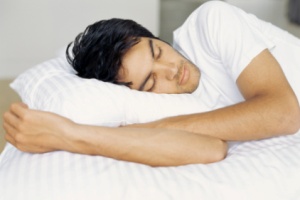 Many American workers aren't getting enough shut-eye -- which can cause serious, even deadly consequences.
Many American workers aren't getting enough shut-eye -- which can cause serious, even deadly consequences.
That's the conclusion of a new study from the National Institute for Occupational Safety and Health (NIOSH), which found that about 29 percent of day shift workers don't get the seven to nine hours of sleep per night recommended by the National Sleep Foundation. The figure was even worse for night shift workers; 44 percent of them get insufficient sleep. For those working night shifts in the transportation and warehousing industries, the sleep-deprived percentage is a whopping 70 percent.
"There about 41 million workers who aren't getting the recommended amount of sleep," said Dr. Sara Luckhaupt, lead author of a new study from the division of surveillance, hazard evaluations and field studies at NIOSH.
"Not surprisingly, workers who work the night shift are more likely to not get enough sleep," she said. Also, people who work more than one job or more than 40 hours a week are likely to get too little sleep, Luckhaupt said.
Luckhaupt said working at night and sleeping -- or trying to -- during the day disrupts the body's natural sleep cycle known as the circadian rhythm.
The report found a correlation between insufficient sleep and on-the-job injuries. Workers who don't get enough sleep are more likely to make mistakes that could injure them and their co-workers.
Additionally, over time, sleep deprivation can contribute to cardiovascular problems, obesity, diabetes and depression.
Luckhaupt recommends that employers not start shifts too early in the morning. If workers are required to rotate shifts, it is better to go from an evening shift to a night shift than the other way around.
For those who struggle to sleep, good habits can help:
•Go to sleep at the same time every day
•Make sure the the bedroom quiet, dark and not too hot or too cold
•Use the bed for sleep, not for reading or watching TV
The report was published in the April 27 issue of the CDC's Morbidity and Mortality Weekly Report.
CDC: Many U.S. workers are sleep-deprived


